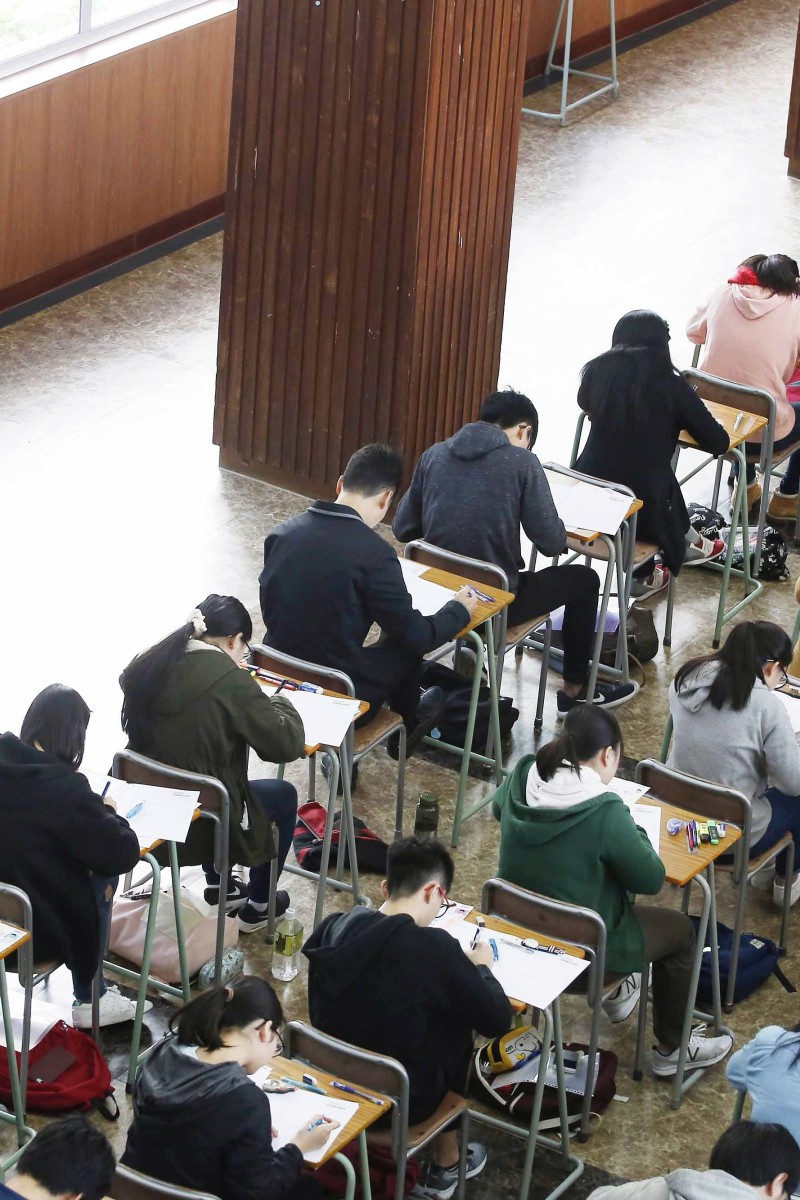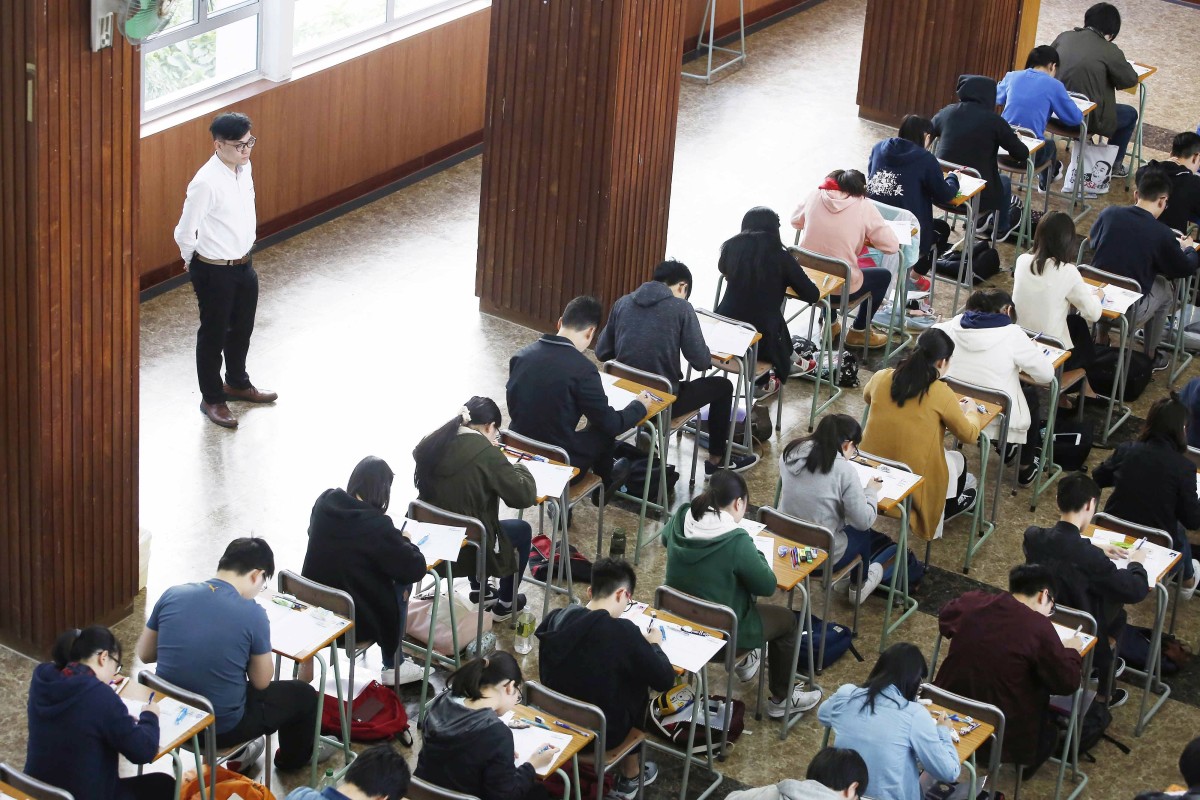
Students had to write a letter to parents as a teacher, while elective writing prompts allowed more creativity
 Students had to write from the point of view of a teacher in Paper 2.
Students had to write from the point of view of a teacher in Paper 2.This year’s HKDSE English Language exams largely contained no troubling questions and should not have been hard to deal with, according to test-takers and teachers.
The examination consists of three papers; Paper 1 tests students on their reading comprehension through reading and answering questions on four different texts, while Paper 2 asked students to respond to situations as certain characters, such as a teacher writing a letter to parents, or as a student applying for a poetry competition.
Paper 1’s reading comprehension was divided into two parts; Part A used passages on music and concentration; most of the questions were fill-in-the-blanks or multiple choice. Part B gave test-takers the choice between two sets of writings; the first was about treating bee stings and local beekeepers, while the second was on hand-pollination by beekeepers in China and beekeeping in the United Kingdom.
Ansley Lee Kwan-ting, English teacher at Kiangsu-Chekiang College, said that Papers 1 and 2 were both not challenging, and that the content should not have been hard to deal with.
“The reading comprehension content in Paper 1 was not very challenging, but the key was time management. Students may be tempted to spend more time on Part A because it tested more on contextual meaning, but in fact Part B may have taken up more time. Students should plan for enough time for each part.”
Lee singled out Part B2 as one of the more challenging sections of the exam, saying that the ambiguous titles (“Farmers Resort to Hand Pollination” and “Sweetness and Light”) and international subject material may have thrown students off in their answers.
Eunice Yip, 17, from Pooi To Middle School, found both Paper 1 and 2 to be easy to understand, but she had some concerns about the reading comprehension.
“I was worried if Part B2 would be as difficult as the 2015 [paper] since last year’s B2 was relatively easy,” Eunice said. “But for some questions [...] you may have to really think twice before you write down the answers,” she added.
Taylor Lam, 18, from Tang King Po School, said that Papers 1 and 2 were probably a 3/5 on the difficulty scale, and that most of the questions were straightforward.
“The questions in Paper 1 Part A were especially straightforward, but I remember answering all of the questions; I found 2-3 challenging.”
Paper 2, which tested students on their writing skills, featured one required question asking students to write a teacher’s letter to parents, and the choice between 8 other questions for a longer piece.
Modern Education English tutor Antonia Cheng said that the focus of Paper 2’s writing tasks was primarily the tone; if test-takers wrote the answer without keeping in mind the tone, examiners would take points off.
“The good thing about the English Language exam paper is that it doesn’t allow test-takers to use pre-memorised phrases or vocabulary. The questions are always asking for an answer written from a certain perspective; for example, when you write an application letter for a competition, you’re not just listing out your accomplishments, the tone is that of a formal letter to a prospective judge or jury.”
She advises students to read as many English materials as they can on a regular basis, because the skill to write in different styles will not come immediately to anyone.